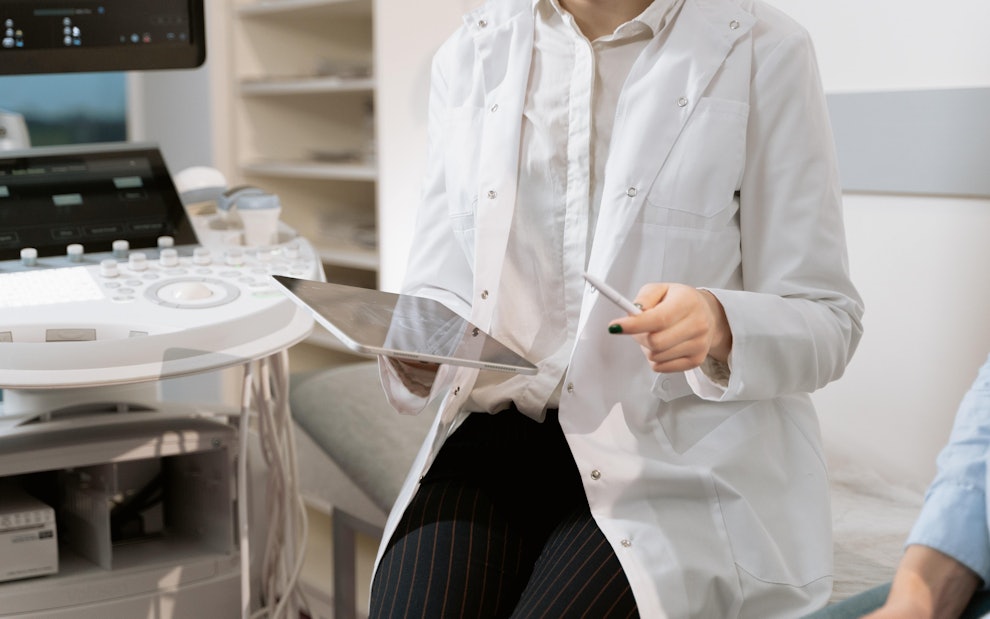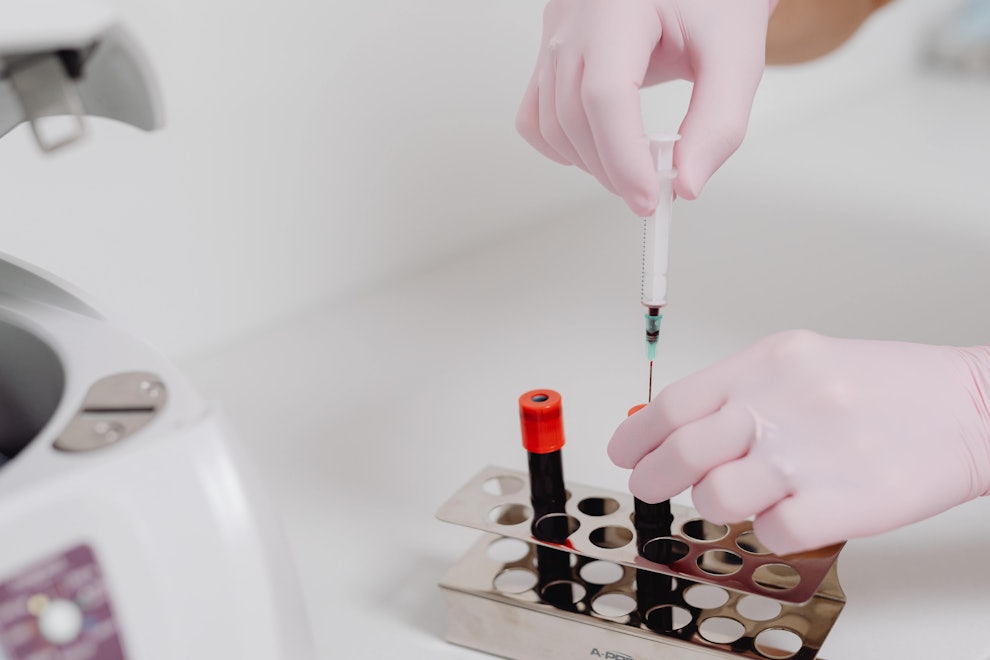Recommended Health Screenings for Adults Ages 65 And Older
Article at a glance
Health screenings are medical tests that can help diagnose potential diseases early to improve patients’ health outcomes.
There are various types of health screenings available. Exactly which tests are recommended will depend on a patient’s age, weight, sex, family history, medical history, and risk factors.
Health screenings are considered an integral part of preventive care, especially as people get older.

Health screenings are an important diagnostic tool and are a vital component of preventive care. While they are essential at any age, screenings are crucial for older adults as they help detect issues and health conditions early, thus improving disease prognosis and treatment success.
There are various types of health screening tests available. Exactly which screenings are recommended depends on a variety of factors including one’s age, weight, sex, personal or family history, risk factors, etc.
This article will focus on the recommended health screenings for adults ages 65 and older.

Screening Guidelines for Adults 65 and Older
There are a number of screenings that are recommended for adults 65 and older such as blood pressure screenings, cholesterol screenings, and more. Exactly which tests are recommended will also depend on sex, medical history, risk factors, weight, and family history as well.
Blood Pressure Screening
High blood pressure (hypertension) is a common condition and often presents without any signs or symptoms. However, this doesn’t mean it’s not dangerous. In fact, hypertension is often referred to as a “silent killer” as its presence is not made known until it is too late. This is why getting an annual screening for blood pressure is so important, especially for adults age 65 and older. It’s always better to be safe than sorry.
Hypertension is also associated with a higher risk of cardiovascular disease, kidney disease, and heart attacks.
Cholesterol Screening
Cholesterol is a waxy substance the body needs to build cells, make vitamins, and produce certain hormones. There are two types of cholesterol: LDL cholesterol and HDL cholesterol. LDL cholesterol is considered the “bad” cholesterol while HDL cholesterol is considered the “good” cholesterol. An excess amount of LDL cholesterol and an insufficient amount of HDL cholesterol is associated with a number of health risks such as a heart attack or stroke.
Cholesterol is measured by a blood test. Men and women 65 and older who report normal cholesterol should have their levels checked at least every five years. People with high cholesterol or other risk factors such as diabetes, heart disease, etc. may need to get their numbers assessed more often.

Diabetes Screening
After age 65, both men and women in good health should be screened for diabetes every three years.
Those who are overweight or experience any of the following risk factors may need to be screened more often:
- Family history
- Sedentary lifestyle
- Had gestational diabetes during pregnancy
Cervical Cancer Screening
After the age of 65, most women who have not had a cervical cancer diagnosis or precancer no longer need to have a pap test so long as they have had three negative pap tests within the past 10 years.
Lung Cancer Screening
Lung cancer screening should be performed annually in the form of low-dose computed tomography (LDCT) if you exhibit the following risk factors:
- Have a history of smoking 20 packs per year
- Regularly smoke
- Have quit smoking within the past 15 years of turning 65

Breast Cancer Screening
Women up to the age of 75 should be screened for breast cancer in the form of a mammogram every one to two years, depending on their particular risk factors for developing breast cancer. Some risk factors may include menstruation starting before age 12, family history of breast cancer, having dense breasts, genetic mutations, and growing older.
After the age of 75, experts do not have a standard opinion on whether or not mammograms are necessary. Women should discuss the need for breast cancer screening with their health care provider.
Colorectal Cancer Screening
Colorectal cancer, also known as colon cancer, is a type of cancer in which the cells of the colon or rectum grow to abnormal levels. Risk factors for colorectal cancer increase as you get older. Some risk factors may include a family history of colorectal cancer or polyps, and certain lifestyle factors such as alcohol consumption, being overweight and tobacco use. Between the ages of 65 to 75, regular colon cancer screenings are recommended for both men and women. After age 75, men and women should consult their health care provider if they should be screened.
There are various types of tests available to screen for colon cancer including stool tests, CT scans, or colonoscopies.
Osteoporosis Screening
Women are at a high risk of developing osteoporosis. As such, all women older than 64 should receive a bone density scan at least once annually. Depending on those results, more frequent tests may be necessary.
All men over 70 should consider getting screened for osteoporosis, especially if osteoporosis runs in their family.
Other Screening Tests
While there are specific screening tests that are introduced as you reach ages 65 and above, it’s important to note that other screening tests you’ve taken over the years will still need to continue. Some examples of these tests include:
Cancer: such as skin cancer screening, prostate cancer screening, and colonoscopy.
Sexually transmitted diseases: screenings for STDs are still important even as you age, especially if you are sexually active with more than one partner.
Vaccinations: particularly around the age of 65+, it’s good to ask your physician about whether you may need pneumococcal and shingles vaccinations, as well as a pneumonia vaccine every five years if you’re at higher risk for contracting it.

The Importance Of Annual Physical Exams
In addition to the aforementioned screenings, getting a physical exam each year is important for overall health as well. During the annual exam, a health care provider will ask about:
- Prescription medications
- Alcohol and tobacco usage
- Diet and exercise
- Mental health issues (i.e. depression or anxiety)
- Sleep regulation
- Fall prevention and balance issues
This annual appointment is also a great time to discuss potential health concerns, immunizations, and more. To learn more about the importance of annual exams and primary care physicians, visit this source.

Additional Ways To Recieve Health Screenings
While physical exams are the most common way to receive health screenings, there are other ways to have access to these preventive services. Opportunities through pharmacies such as Advocate Clinic at Walgreens, which you can learn more about here, or Project Health at CVS, which you can learn more about here.
Your primary care physician may also recommend you go to a diagnostic facility for certain screenings, such as mammograms or colonoscopies.
FAQ
What tests should be done at age 65?
A few recommended health screening tests at age 65 include high blood pressure, cholesterol, and bone mineral density tests, among others.
What are the most common health screenings?
Examples of common health screenings include skin checks, blood pressure, cholesterol, eye exams, and immunizations, among others.
Sources
https://www.hopkinsmedicine.org/health/treatment-tests-and-therapies/routine-screenings
https://www.hhs.gov/programs/prevention-and-wellness/health-screenings/index.html
https://www.beaumont.org/health-wellness/blogs/recommended-health-screenings-for-all-lifes-stages
https://www.cdc.gov/aging/pdf/promoting-preventive-services.pdf
https://medlineplus.gov/lab-tests/how-to-cope-with-medical-test-anxiety/
https://www.heart.org/en/health-topics/cholesterol/about-cholesterol
https://www.cdc.gov/cancer/breast/basic_info/risk_factors.htm
https://www.cdc.gov/cancer/colorectal/basic_info/risk_factors.htm
Health Screenings for Seniors
This graphic breaks down the various health screenings that are vital for seniors.




